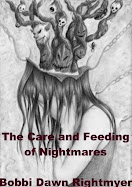Free verse was first used by French symbolist poets in the late 1800s. T. S. Eliot was among the first poets writing in English to adopt it and introduced it to the English- speaking world by its French term, vers libre. He and other Modern poets adopted it in reaction to the disorientation that resulted with the advent of World War I. Since then, it has become the most used form (yes, form) of Western poetry. Many poets employ it as their default mode of expression. Because so much of free verse has been poorly written in recent years, and because confessional poetry (which free verse is closely associated with) has long since fallen out of fashion, there is a movement in the poetry world at the moment that declares it dead, used up, even inferior. Many are almost fanatically advocating the return of form as the mode of choice for 21st century poets.
But the very existence of such an ideal reveals an ignorance concerning how poetry is being practiced today and what exactly free verse (vers libre) really is. This ignorance is rather surprising when one takes into account the over-emphasis on academic degrees, professorships, and lecture posts among contemporary poets- so much so that the casual observer and beginning poet may come to think these are required for one to be a true poet.
The argument in favor of a return to form ignores two facts. One, that a large portion of contemporary poets utilise both traditional forms and free verse throughout their various oeuvres. Two, that free verse (vers libre) is itself a poetic form and, after more than a century's use, might well be considered as a traditional form in Western literature.
As for that first point, one could easily pick up the Collected volumes of any number of well known poets publishing today and see the truth of it. Many of our most beloved poets do not limit themselves either to free verse or tradional forms alone, but freely and skillfully employ anything available to them.
As for the second point, it is true that many use free verse incorrectly and lazily. Many mistakenly believe that free verse means that the poem can have no structure at all. Many poems passed off as "free verse" amount to little more than prose poems with line breaks and even stanza breaks. Some of it cannot even be loosely considered as prose poems. It would be beneficial to remind some that sentences seperated by blank spaces on the page do not make those sentences poetry. In fact, free verse is very structured and requires some skill to write in a satisfactory manner. It is a form.
Perhaps the best example of what I'm trying to clarify is the work of T. S. Eliot himself: "The Waste Land". Anyone who has taken poetry classes in any college in the U. S. has had to dissect this poem. Look closely at it again. It is written in free verse (or as Eliot himself would have called it: vers libre). But what is it that makes it liberal or liberated as a form? You will quickly see that it is not a total lack of form. In fact, it is a potpourri of forms. And that is what free verse is: it uses what is commonly refered to as the traditional forms and slips in and out of them freely. Sometimes these parts rhyme and sometimes they don't. But never is there a moment in that poem where form does not exist. One piece may be blank verse, another a variation on a sonnet. It changes. It is fluid. It is living. But it is undeniably structured.
When one realises that free verse is actually a sort of tiny collection of forms, and thereby a form in its own right, the argument that one needs to turn one's back on it as poetry in order to return to form negates itself. The sentiment that it is used up also becomes unreasonable because the problem that has brought up that sentiment is misuse (or no use at all) of free verse brought on by a collective misunderstanding of what it is. In theory and in practice, there is no limit to the variation and possible manipulations of the free verse form, just as there is no limit to the variations and possible manipulations of the sonnet (and most of the other traditional) forms. How then could it be out-of-date, undesirable to use, and time to dicard it?
WHY ARE WE HERE
5 years ago










